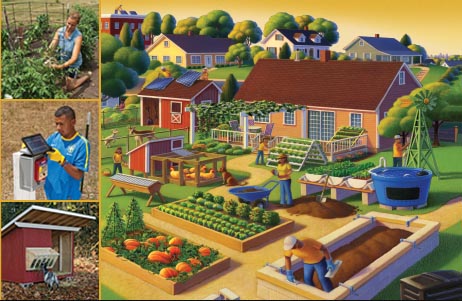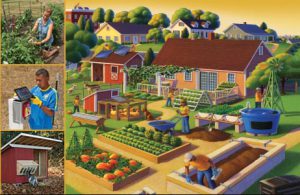I’ve started a stockpile, but that isn’t the answer. If crisis strikes, the government needs a strategy to protect us all
I hate to sound like a prepper, but I feel bound to confess that over the past month I’ve been stockpiling food. I think, if you can, you should do the same. I’ve put aside 25kg of rice, 15kg of dried chickpeas, 15kg of bread flour, 7kg of chapati flour, 5kg of oats, six litres of vegetable oil, a slab of tinned tomatoes, some nuts and dried fruit. This, with the vegetables we grow, represents about two months’ supply for our family.
I hope the chances of having to use our stockpile are small. But if we no longer need this insurance, we can eat it. Strange as it may sound, I see this hoarding as pro-social. Building a reserve while food is abundant reduces demand in a crisis. Community stockpiling and resilience planning would be better still. But I’m not waiting.
Researching my book Regenesis, I learned about the extraordinary reliance of food-importing nations on the US. Almost 60% of the calories grown by farmers take the form of wheat, rice, maize and soya beans. As nations have polarised into super-exporters and super-importers, production for export has become highly concentrated in a handful of countries. The US is among the biggest exporters of all four commodities.
A deliberate effort to cut off the UK seems unlikely. But that’s not the issue. The issue is that even a modest interruption in supply, which Donald Trump’s antics render more likely, could trigger sudden global failure in the food system. Interruption risks include software outages, military attacks on the straits and canals through which huge volumes of food pass, and the collapse of one of the corporate food giants that have become too big to fail.
Read more: The Guardian




